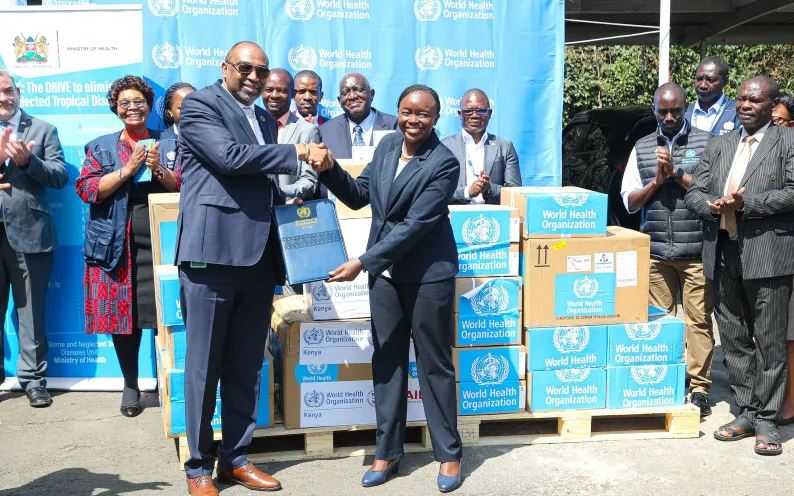 Kenya has received vital Mpox sample collection kits to boost its ability to conduct accurate and timely diagnostic testing.
Kenya has received vital Mpox sample collection kits to boost its ability to conduct accurate and timely diagnostic testing.
The shipment comprises 28 PCR diagnostic kits capable of testing 2,688 suspected Mpox samples, alongside 2,500 scalpel blades, viral transport media, and swabs for sample collection. These supplies, donated by USAID through the World Health Organization (WHO), will enable rapid detection and response to the ongoing Mpox outbreak.
During a handing-over ceremony at Afya House on Monday morning, Health Cabinet Secretary Dr. Deborah Barasa accepted the testing kits.
In addition to the kits, USAID has allocated $500,000 to WHO Kenya to enhance the Ministry of Health’s response to the Mpox crisis. Furthermore, WHO has supported the ministry in developing a national Mpox preparedness and response plan that targets 14 high-risk counties.
So far, Kenya has reported 13 Mpox cases from 238 samples across 10 counties, including Nakuru, Kajiado, Taita Taveta, Busia, Mombasa, Bungoma, Kericho, Kilifi, and Nairobi. Health Director-General Patrick Amoth confirmed that one patient with underlying health complications has died.
“Eight patients have recovered and returned home, while four remain hospitalized,” he added.
Despite receiving an alert from the WHO regarding the Marburg virus, Kenya has not reported any cases. Dr. Barasa highlighted the significance of the new testing kits, stating, “This timely support comes as our nation grapples with an ongoing Mpox outbreak. The introduction of these testing kits will enhance our capacity to detect and respond to Mpox cases more swiftly and effectively, ultimately saving lives and curbing the spread of this outbreak.”
The Cabinet Secretary also urged for increased support to expand the capacity of the country’s National Public Health Laboratory Services (NPHLS) to include testing for Marburg and other high-risk pathogens. She stressed the urgent need to establish advanced Biosafety Level 3 laboratories to securely handle dangerous pathogens.
“We must recognize that our efforts cannot stop here. Emerging health threats, such as the Marburg virus reported in neighboring countries, highlight the necessity of proactive measures to prevent future outbreaks,” she stated.
Looking ahead, she called for urgent support in critical areas, including enhancing genomic sequencing capacity and building bioinformatics expertise within the NPH.








